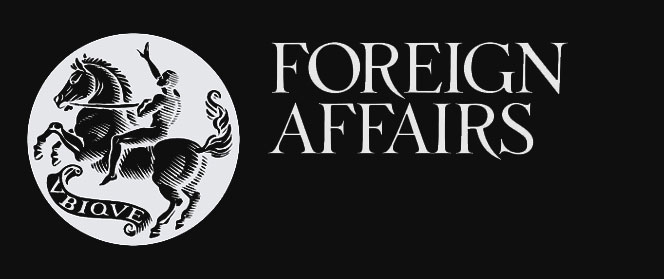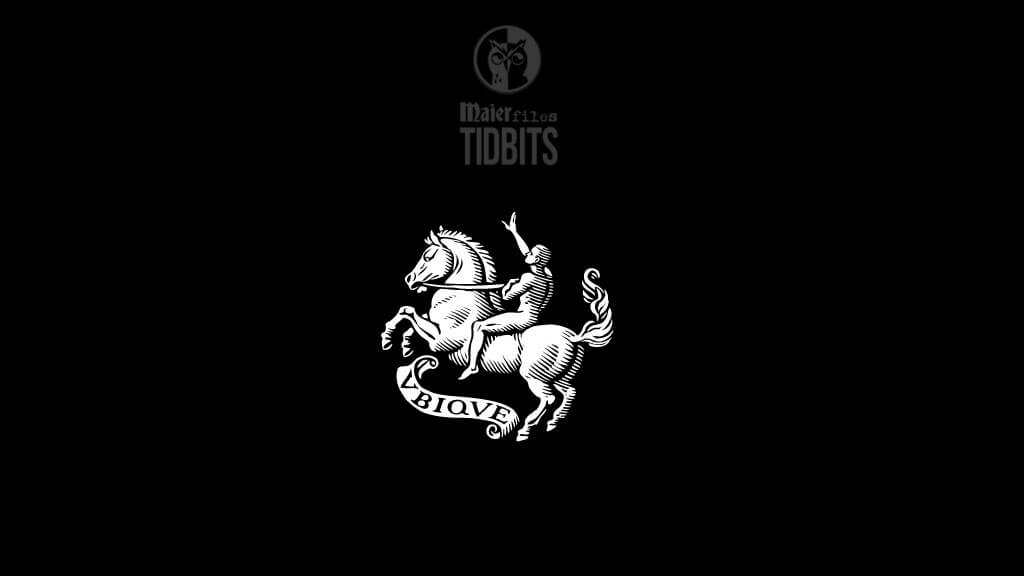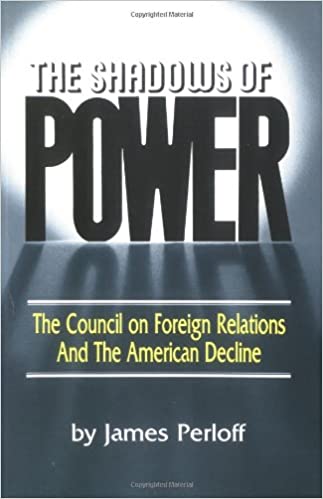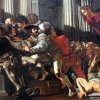Speaking before Britain’s House of Lords in 1770, Sir William Pitt declared: “There is something behind the throne greater than the king himself,” thus giving birth to the phrase “power behind the throne.”
In 1844, Benjamin Disraeli, England’s famed statesman, published a novel entitled Coningsby, or the New Generation. It was well known as a thinly disguised portrayal of his political contemporaries. In it, he wrote: “The world is governed by very different personages from what is imagined by those who are not behind the scenes.”Felix Frankfurter, justice of the U.S. Supreme Court, restated this in an American context when he said: “The real rulers in Washington are invisible, and exercise power from behind the scenes.”
Frankfurter was not alone in that assessment. During this century, the existence of a secret U.S. power clique has been acknowledged, however rarely, by prominent Americans.On March 26, 1922, John F. Hylan, Mayor of New York City, said in a speech:The real menace of our republic is the invisible government which, like a giant octopus, sprawls its slimy length over our city, state and nation. At the head is a small group of banking houses generally referred to as “international bankers.” This little coterie of powerful international bankers virtually run our government for their own selfish ends.”
The Establishment
There is, of course, in America, what we have come to call “the Establishment.” This expression was popularized by English writer Henry Fairlie in an article about Britain’s ruling circle. It was used in the U.S. during the Vietnam War as a term of scorn. Today it is a legitimate word in its own right, defined by the American Heritage Dictionary as “an exclusive group of powerful people who rule a government or society by means of private agreements and decisions.” The idea of such an arrangement naturally rankles most Americans, who believe that government should be of the people at large, and not a private few.Who or what is the American Establishment? A few books have depicted it, but these have rarely attained much circulation or publicity — perhaps for no other reason than the Establishment prefers to remain “behind the scenes.”
Council on Foreign Relations
Historian Arthur Schlesinger, Jr. has called the Council on Foreign Relations a “front organization” for “the heart of the American Establishment.” David Halberstam, in his acclaimed book The Best and the Brightest, dubbed it “the Establishment’s unofficial club.”Newsweek has referred to the CFR’s leaders as “the foreign-policy establishment of the U.S.” Richard Rovere, writing in Esquire magazine, saw them as “a sort of Presidium for that part of the Establishment that guides our destiny as a nation.”
The Council describes itself as a “nonprofit and nonpartisan membership organization dedicated to improved understanding of American foreign policy and international affairs.” It is headquartered in the elegant Harold Pratt House at 58 East 68th Street in New York City. As of June 1987, the CFR had 2,440 members, including many prominent persons in business, government, law, and the mass media. Membership is by invitation only.The Council holds frequent meetings and dinners which feature a speech by a guest — usually a ranking statesman from Washington or a foreign country — followed by a discussion with members. These meetings follow a rule of “non-attribution,” meaning that everything is off the record.
A scandal
Violation of this rule is considered grounds for dismissal from the CFR. The Council explains that its no-quote policy is to encourage candor, but economist John Kenneth Galbraith, himself a former member, has called it “a scandal.” “Why,” he asks, “should businessmen be briefed by Government officials on information not available to the general public, especially since it can be financially advantageous?”
Pratt House also conducts fifteen to twenty study groups every year. Each is assigned a particular foreign policy topic, and meets regularly to deliberate it. The findings of a study group are customarily published, often in book form.Five times a year, the Council puts out a journal called Foreign Affairs. In addition to serving as a mouthpiece for CFR members, it carries articles — some ghostwritten — by American and foreign dignitaries. Although notorious for being boring, Foreign Affairs is widely read by those involved with making foreign policy, and has been called by Timemagazine “the most influential periodical in print.”
The CFR undertakes other activities, such as its “Corporate Program” that indoctrinates businessmen in international matters. The Council’s annual budget is about $8.5 million, which is mostly funded by foundation grants, members’ dues and contributions, and publication revenue. And it has affiliates called “Committees on Foreign Relations” in thirty-eight cities around the United States.

More Than Just a Club
The Council on Foreign Relations, while remaining largely unknown to the public, has exercised decisive impact on U.S. policy, especially foreign policy, for several decades. It has achieved this primarily in two ways. The first is by directly supplying personnel for upper echelon government jobs.Few Americans know how a President chooses his administrators. The majority probably trust that, aside from an occasional political payoff, the most qualified people are sought and found. But the CFR’s contribution cannot be overlooked. Pulitzer Prize winner Theodore White said that the Council’s “roster of members has for a generation, under Republican and Democratic administrations alike, been the chief recruiting ground for cabinet-level officials in Washington.”
The Christian Science Monitor once observed that “there is a constant flow of its members from private life to public service. Almost half of the council members have been invited to assume official government positions or to act as consultants at one time or another.”
Indeed, Joseph Kraft, writing in Harper’s, called the Council a “school for statesmen.”
David Halberstam puts it more wryly: “They walk in one door as acquisitive businessmen and come out the other door as statesmen-figures.” (John Franklin Campbell, “The Death Rattle of the American Establishment,” New York, September 20, 1971, p. 48.)
The historical record speaks even more loudly than these quotes. Through early 1988, fourteen secretaries of state, fourteen treasury secretaries, eleven defense secretaries, and scores of other federal department heads have been CFR members.
The defenders
Defenders of the Council on Foreign Relations say such enumerations are misleading because some officials are invited into the Council after appointment to government. However, close inspection does not reveal this to be a particularly extenuating factor. Every secretary of state since 1949 has been a member of the Council, and of these, only one, William P. Rogers, joined the CFR subsequent to appointment. That an individual enrolls in the Council after entering public service does not purge his membership of significance, because the organization may still influence him considerably while in office.
The CFR claims to be pluralistic — however, because one can join only through the nomination of others already in the Council, the group naturally tends to remain homogeneous. J. Robert Moskin recounts of the CFR’s early days: “Although the Council itself never took a position, its members’ bias was apparent to all.”
Richard Barnet, himself a CFR member, wrote in 1972 that “in recent years a few symbolic policy critics have actually been recruited, but failure to be asked to be a member of the Council has been regarded for a generation as a presumption of unsuitability for high office in the national security bureaucracy.”
And even the New York Times, itself regarded as an Establishment organ, has acknowledged that the Council has “a uniform direction.” If the CFR does possess a distinct viewpoint, Americans should know about it — because officials of the U.S. government, drawn so frequently from the Council’s ranks, are apt to take that viewpoint to Washington with them.
Globalism and World government
Charges have been repeatedly leveled at the Council that it holds two particularly unwholesome doctrines.Of GlobalismThe first of these is that the CFR advocates the creation of a world government. The ultimate implication of this is that all power would be centralized in a single global authority; national identities and boundaries (including our own) would be eliminated. It is said that while the CFR does not always espouse this idea directly, it does at least insinuate it, as by suggesting measures that would serve as stepping stones toward this end. The charge is easily substantiated.
Anyone who cares to examine back issues of Foreign Affairs will have no difficulty finding hundreds of articles that pushed — whether zealously or by “soft sell” — this concept of globalism. But he will be hard pressed to locate even one essay opposing it. This, of course, deflates Foreign Affairs’ claim of “a broad hospitality to divergent ideas. ”According to Admiral Ward, the CFR has as a goal “submergence of U.S. sovereignty and national independence into an all-powerful one-world government.” He wrote that “this lust to surrender the sovereignty and independence of the United States is pervasive throughout most of the membership….” And he added: “In the entire CFR lexicon, there is no term of revulsion carrying a meaning so deep as ‘America First.”
Communism
A second, more controversial accusation against the Council is that it has been “soft” on Communism—so soft, in fact, that its members have often exerted their influence on behalf of the international Communist movement. This charge would appear untenable at first—considering that “the Establishment,” centered on Wall Street, is conventionally regarded as the antithesis of the radical left. But here again, review of the CFR’s house organ, Foreign Affairs, proves very instructive.
One finds that dozens of Marxists and socialists have published articles in that journal—even such titans of Communism as Leon Trotsky, Soviet Premier Nikita Khrushchev, and Yugoslavia’s Josip Broz Tito. Indeed, when Trotsky died, he was eulogized in Foreign Affairs as follows:He gave us, in a time when our race is woefully in need of such restoratives, the vision of a man.
Of that there is no more doubt than of his great place in history. On the other hand, if one searches Foreign Affairs for an American author whose name is popularly associated with patriotism or anti-Communism, he looks all but in vain.Lenin so admired the first issue of the publication that he underscored passages in some of its articles. (Leonard Silk and Mark Silk, The American Establishment (New York: Basic Books, 1980), pp. 192-93.) The Council today proudly possesses Lenin’s original copy.
src. James Perloff’s “The Shadows of Power The Council on Foreign Relations And The American Decline.”
Excellent read!
There is good news and bad news. The good news is this book has been written. The bad news is, it’s true. Get ready to learn the influence of the internationalist Establishment of the United States. You’ll learn the impact this backdoor powerhouse has made on America’s past – and what it is planning for the future in James Perloff’s “The Shadows of Power The Council on Foreign Relations And The American Decline.”




